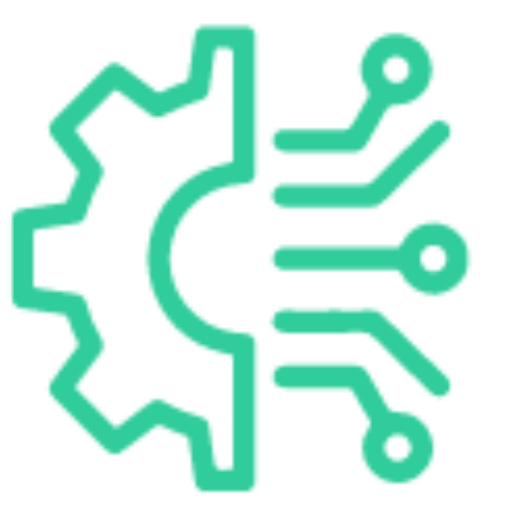Forbes claims that cloud-native technologies and artificial intelligence have begun to converge after reaching the peak of the hype cycle, changing the face of enterprise IT going forward. Several of the most important technological trends for 2024 are now supported by generative AI, AI-augmented development, and cloud-native capabilities, which were previously considered new and unpredictable. Managing increasingly complex hybrid and multicloud environments, where efficiency and agility are critical, is a constant challenge for organizations.
At the same time, there is a growing need for more intelligent automation and quicker innovation. Businesses can address these issues head-on by utilizing cloud native platforms, which are fueled by adaptable container orchestration tools like Kubernetes, and incorporating AI-driven insights. This will accelerate the deployment of applications and optimize resource utilization across data centers, edge locations, and clouds worldwide. This combination is rapidly evolving from experimental to essential, enabling businesses to achieve new levels of responsiveness and productivity in a fiercely competitive environment.
The CEO of Alphabet and Google, Sundar Pichai, has highlighted the revolutionary role of artificial intelligence (AI) in cloud computing, saying that " Pichai said AI is the most profound technology humanity is working on and the more people work to advance the science of AI, the better opportunities will be created for communities everywhere." This demonstrates how AI and cloud-native infrastructures work in crucial harmony, advancing enterprise IT by enabling scalable intelligence and accelerating innovation at an unprecedented pace.
Facing Complexity in Enterprise IT
Managing massive data volumes and an increasing number of applications in increasingly hybrid and multicloud environments is a formidable task for enterprise IT today. Supporting rapid digital transformation while balancing security, scalability, and cost effectiveness pushes the boundaries of traditional infrastructures and human expertise. The complexity and speed of contemporary AI workloads are too great for legacy systems, resulting in inefficiencies that compromise business agility.
By 2025, more than 95% of new digital workloads will be deployed on cloud-native platforms, according to Gartner, underscoring the urgency for businesses to adopt scalable and adaptable solutions. To decrease complexity and boost operational resilience, Auxin AI helps by automating deployment procedures and facilitating seamless integration and management across hybrid cloud environments.

How Cloud Native Sparks Innovation
Applications can now run consistently and elastically across clouds, data centers, and the edge, thanks to cloud-native technologies, which are spearheaded by container orchestration platforms like Kubernetes. Due to this flexibility, innovation cycles are significantly accelerated, allowing businesses to respond quickly to shifting market demands and introduce new capabilities. Cloud native architectures' scalable and modular design facilitates mixed environments and helps prevent vendor lock-in, increasing cost-effectiveness and agility.
Their business-critical value is demonstrated by the fact that "the modular format of these cloud-native systems allows businesses to respond quickly to evolving requirements without interrupting operations." With its low-code platform and sophisticated workflow management, Auxin AI amplifies this benefit by expediting the deployment of AI models and ensuring seamless operation across various infrastructures.
AI Powers Efficiency Like Never Before
With its ability to automate repetitive tasks, improve security, and provide deep insights for more intelligent decision-making, AI is quickly becoming an essential component of enterprise IT. While AI-powered monitoring anticipates and prevents system outages, AI-augmented development helps companies enhance code quality and expedite release cycles. The integration of AI Trust, Risk, and Security Management (AI TRiSM) frameworks ensures the safe and compliant adoption of AI.
The enormous amount of daily data, estimated at 2.5 quintillion bytes, has made traditional IT infrastructures inadequate for effectively managing and processing such massive datasets, highlighting the need for AI-driven real-time analytics and automation. Large datasets are processed efficiently by Auxin AI's advanced analytics tools, which yield actionable insights that enable companies to innovate and optimize their operations with confidence.
Mixing Cloud Native and AI for the Future
Enterprise IT is evolving into a dynamic, intelligent ecosystem due to the convergence of AI and cloud-native infrastructure. By coordinating tasks and managing limited resources, such as GPUs, AI enhances containerized environments, facilitating the rapid and iterative implementation of AI solutions. By transforming complexity into opportunity, this synergy enables automation at scale and unlocks previously unattainable productivity gains.

Companies like Netflix are generating $1 billion annually from AI-driven personalized recommendations, thanks to generative AI, which is revolutionizing content creation and automation through cloud-native platforms. With its GenAI Firewall and token exchange features, Auxin AI manages data security and costs while providing a unified, secure GenAI development platform that simplifies application creation by a factor of 100. This integrated approach ensures that businesses not only keep pace but also actively influence the direction of IT by combining cloud-native agility with AI intelligence and leveraging Auxin AI's innovations to simplify complexity, safeguard data, and drive digital growth.
Looking Ahead with Smarter Tech
By 2025, over 95% of new digital workloads will run on cloud-native platforms, highlighting their critical role in enterprise IT transformation. The fusion of AI and cloud native technologies is rapidly shifting from hype to necessity, driving faster innovation and more intelligent automation. Auxin AI accelerates this evolution by simplifying AI deployment and securing data across hybrid environments, empowering businesses to compete and grow in a complex digital world.

